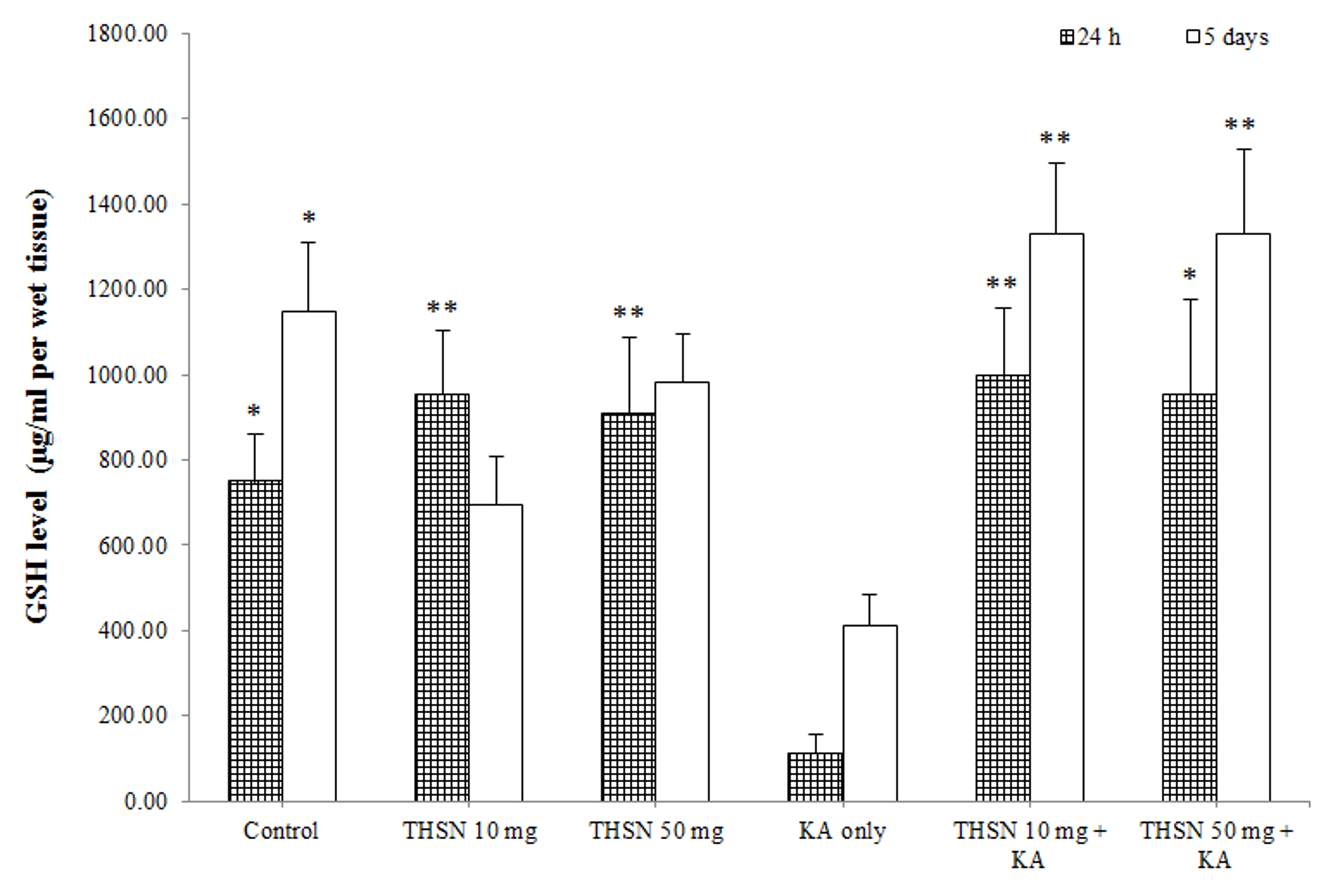Tualang honey-mediated silver nanoparticles attenuate hippocampal oxidative stress in kainic acid-induced male rats
DOI:
https://doi.org/10.15419/bmrat.v9i12.785Keywords:
antioxidant, hippocampus, kainic acid, oxidative stress, protective effect, rats' model, silver nanoparticles, Tualang honeyAbstract
Introduction: Kainic acid (KA) has been widely used to study the mechanism of excitotoxicity-induced neurodegeneration and to investigate neurodegenerative therapeutic intervention. The present study aimed to investigate the protective effects of Tualang honey-mediated silver nanoparticles (THSN) against oxidative stress in the hippocampus of KA-induced rats.
Methods: Male Sprague Dawley rats (n = 72) were randomized into six groups: i) control, ii) THSN 10 mg, iii) THSN 50 mg, iv) KA only, v) THSN 10 mg + KA, and vi) THSN 50 mg + KA. The animals were administered distilled water or THSN (10 or 50 mg/kg), according to their respective groups, five times at 12 h intervals before being injected subcutaneously with saline or KA (15 mg/kg). Animals were sacrificed after 24 h and 5 days of KA induction. Malondialdehyde (MDA), total nitrate/nitrite (NOx), protein carbonyl (PCO), glutathione (GSH), total antioxidant status (TAS), and catalase (CAT) activity in the hippocampal tissue were measured using commercially available ELISA kits.
Results: THSN pre-treatments significantly improved oxidative status in the hippocampus by decreasing the MDA, NOx, and PCO levels while increasing the levels of GSH, TAS, and CAT activity.
Conclusion: THSN attenuated the KA-induced oxidative stress in the rat hippocampus through its antioxidant effects.

Published
Issue
Section
License
Copyright The Author(s) 2017. This article is published with open access by BioMedPress. This article is distributed under the terms of the Creative Commons Attribution License (CC-BY 4.0) which permits any use, distribution, and reproduction in any medium, provided the original author(s) and the source are credited.
